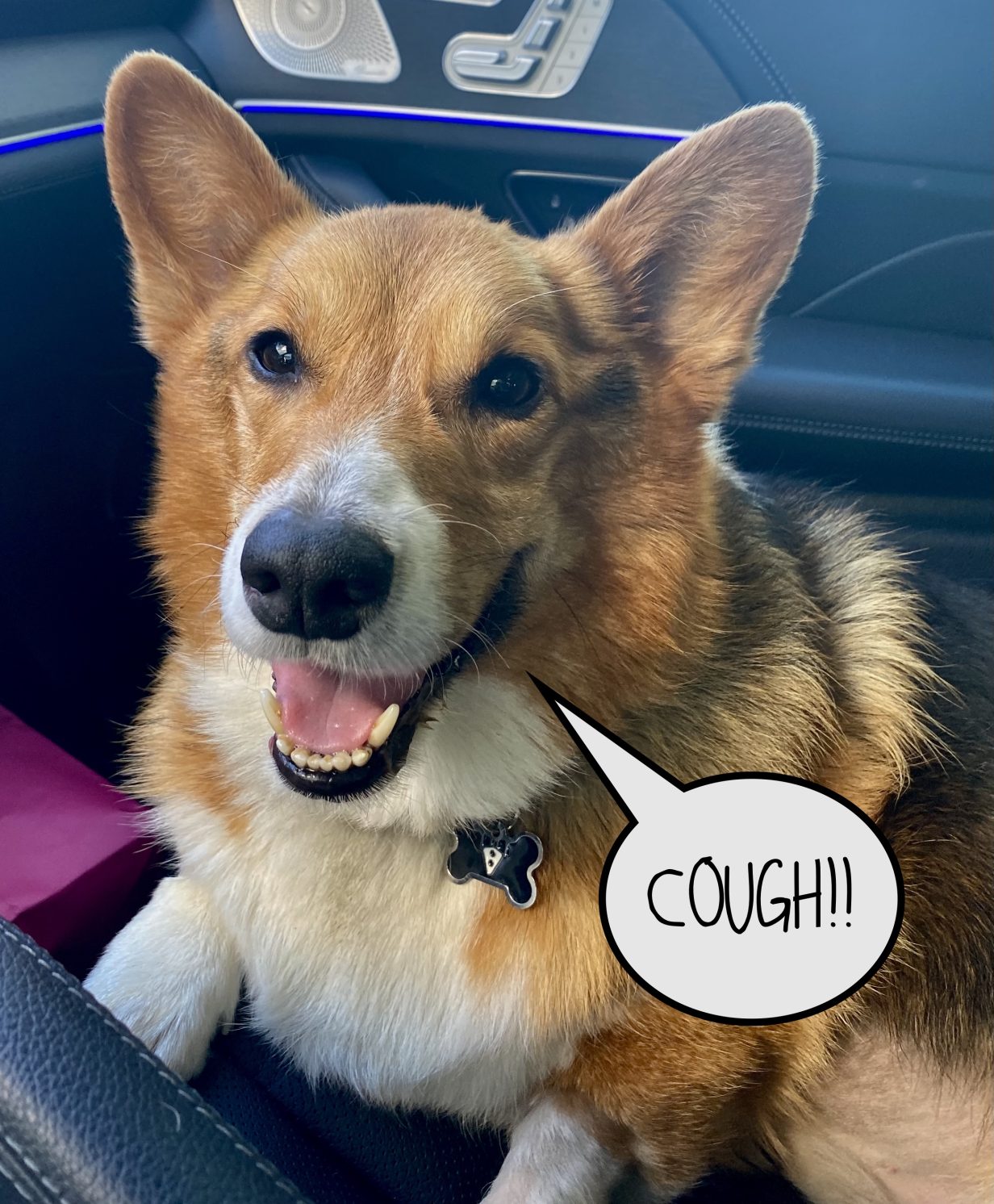
CHRONIC COUGHING IN DOGS
Samantha Bailey, DVM, Diplomate ACVIM
If your dog is coughing at home, it can be frustrating when it is not getting better after a few weeks. Chronic coughing can be due to a variety of conditions in dogs, including chronic bronchitis, pneumonia, airway collapse, and cancer. Chronic bronchitis is a condition where there is chronic inflammation in the airways. This can be triggered by allergies in some patients and is a lifelong condition that cannot be cured, but can be managed long term. Pneumonia can be due to a bacterial or fungal infection in the lungs. Bacterial pneumonia is most commonly due to aspiration after vomiting or reflux. Fungal pneumonia is typically picked up in the environment. Airway collapse occurs when there is weakening of the cartilage within the airways and typically progresses over time. Finally, cancer can also cause coughing whether it starts out in the lungs as a primary tumor or metastasizes (spreads) to the lungs in the later stages of the disease.
A series of diagnostics can be run to determine which of these conditions may be causing your dog to cough. Typically, chest radiographs are performed to evaluate your pet’s lungs and are best for diagnosing pneumonia, cancer, and some types of airway collapse. If we see a mass in your pet’s lung on radiographs, we can perform an aspirate to determine what type of cancer may be present. A lung aspirate is where we take a small needle and get a sample of a lung mass. This is typically done awake or with light sedation since it is a quick procedure. We can also perform a bronchoscopy (camera evaluation of the lungs) and lung wash (also called a BAL) to diagnose chronic bronchitis and airway collapse. These tests are performed under general anesthesia. Infectious disease testing can be performed to look for an infection causing your pet’s coughing.
Once your pet’s condition has been diagnosed, we can treat the coughing much more effectively. This may involve antibiotics for weeks or antifungals for months, if your pet has pneumonia, or long-term corticosteroids, if your pet has chronic bronchitis. Other treatments include cough suppressants for airway collapse; chemotherapy, surgery, or radiation therapy for lung cancer, depending on the type. Your dog’s prognosis will depend on their diagnosis and how they respond to treatment, which we are happy to discuss after evaluating your pet.
If your dog is chronically coughing at home, please see your local veterinarian. Typically, the longer a cough goes without treatment, the more difficult it can be to correct the underlying cause.
